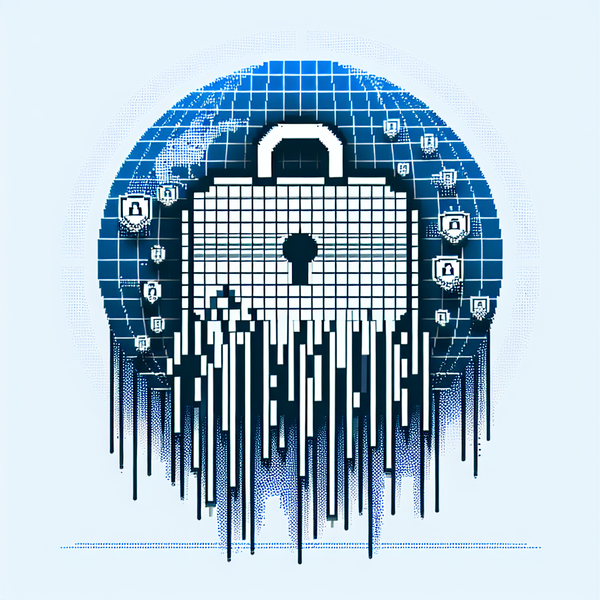Secret CISO 11/7: Conduent & Klarna Breaches, Europol's Fraud Bust, AI Malware Emerges, Cisco UCCX Flaw

Welcome to today's edition of Secret CISO, where we unravel the latest in cybersecurity threats and defenses. Our journey begins with Conduent, a giant in the healthcare sector, now embroiled in legal turmoil due to a colossal data breach. As lawsuits pile up, the ripple effects of this breach are felt far and wide, highlighting the urgent need for robust data protection measures.
Across the pond, a survey reveals a startling lack of preparedness among UK adults for dark web data leaks, underscoring a critical gap in public awareness. Meanwhile, Hyundai faces its own data breach woes, with Edelson Lechtzin LLP stepping in to investigate, reminding us of the relentless nature of corporate cyber threats.
In the financial world, Europol's successful takedown of a credit card fraud ring serves as a beacon of hope in the fight against cybercrime, while Klarna grapples with the aftermath of a potential data leak affecting hundreds of thousands of customers.
Government entities are not immune, as evidenced by the Congressional Budget Office's recent hack, prompting new security measures. This breach serves as a stark reminder of vulnerabilities even within the most secure institutions.
On the technological frontier, hackers are weaponizing Windows Hyper-V to evade detection, and researchers uncover alarming security flaws in ChatGPT, raising concerns about AI-driven platforms. Cisco's UCCX flaw and Google's discovery of LLMs in malware campaigns further emphasize the evolving complexity of cyber threats.
Finally, we delve into a series of critical vulnerabilities affecting popular WordPress plugins and Google Chrome's V8 engine, each posing significant risks to users worldwide. These discoveries highlight the ongoing battle to secure digital landscapes against ever-evolving threats.
Stay informed, stay secure, and join us as we navigate the intricate web of cybersecurity challenges and innovations.
Data Breaches
- Conduent Pummeled With Suits Over Months-Long Data Breach: Conduent is facing multiple lawsuits following a massive data breach that is considered one of the largest in healthcare history. The breach has led to significant legal challenges as affected individuals seek accountability and remediation. Source: Law360.
- UK Adults Unprepared for Dark Web Data Leaks, Survey Finds: A recent survey highlights that 72% of UK adults are not ready to handle their personal data being exposed on the dark web. This finding underscores a critical gap in public awareness and preparedness for cyber threats. Source: SecurityBrief UK.
- Data Breach Alert: Edelson Lechtzin LLP is Investigating Claims on Behalf of Hyundai: Edelson Lechtzin LLP is investigating a data breach involving Hyundai AutoEver America, urging affected individuals to take protective measures against identity theft. This incident highlights the ongoing risks associated with corporate data breaches. Source: Reflector.
- Klarna Feared Data Leak Exposed 288,000 Customer Logins, Messages Show: Klarna, a buy-now, pay-later company, faced a security issue that potentially exposed 288,000 customer logins. Internal messages reveal concerns over a $41 million impact due to legal and remediation costs. Source: Business Insider.
- Congressional Budget Office Implements New Security Measures After Getting Hacked: The Congressional Budget Office has been hacked, prompting the implementation of new security measures. While the breach's origin remains unclear, it highlights vulnerabilities even within government entities. Source: ABC News.
Security Research
- Risky Bulletin: Europol arrests payment service executives for role in credit card fraud ring: Europol has successfully dismantled a credit card fraud ring by arresting key executives of a payment service provider. This operation highlights the ongoing battle against financial cybercrime and the importance of international cooperation in tackling such threats. The arrests are expected to significantly disrupt the operations of the fraud ring. Source: Risky Business.
- Hackers Weaponize Windows Hyper-V to Hide Linux VM and Evade EDR Detection: Security researchers have discovered a sophisticated method used by hackers to evade Endpoint Detection and Response (EDR) systems. By exploiting Windows Hyper-V, attackers can hide a Linux virtual machine, making it difficult for security tools to detect malicious activities. This technique underscores the evolving complexity of cyber threats and the need for advanced detection capabilities. Source: The Hacker News.
- Researchers claim ChatGPT has a whole host of worrying security flaws - here's what they found: Security researchers have identified several vulnerabilities in ChatGPT, which could be exploited for data theft and other malicious activities. These findings raise concerns about the security of AI-driven platforms and the potential risks they pose to user data. The research highlights the need for robust security measures in AI systems. Source: TechRadar.
- Critical Cisco UCCX flaw lets attackers run commands as root: A critical vulnerability in Cisco's Unified Contact Center Express (UCCX) has been discovered, allowing attackers to execute arbitrary commands with root permissions. This flaw poses a significant risk to affected systems, and users are urged to apply patches immediately. The discovery emphasizes the importance of timely vulnerability management in maintaining system security. Source: Bleeping Computer.
- Google researchers detect first operational use of LLMs in active malware campaigns: Google researchers have identified the first known use of Large Language Models (LLMs) in active malware campaigns. This development marks a new era in cyber threats, where AI technologies are leveraged to enhance the sophistication and effectiveness of attacks. The findings call for increased vigilance and adaptation of security strategies to counter AI-driven threats. Source: CSO Online.
Top CVEs
- CVE-2025-22288: Path Traversal vulnerability in WPMU DEV's Smush Image Compression and Optimization plugin for WordPress allows unauthorized access to files. This flaw could be exploited by attackers to access sensitive files on the server. Source: Vulners.
- CVE-2025-32222: Widget Logic plugin for WordPress has a Code Injection vulnerability, allowing attackers to execute arbitrary code. This could lead to unauthorized actions on the affected site. Source: Vulners.
- CVE-2025-12036: Google Chrome's V8 engine has an out-of-bounds memory access vulnerability, which could be exploited by a remote attacker to execute arbitrary code via a crafted HTML page. Source: Vulners.
- CVE-2025-39465: The Advanced Google Maps plugin for WordPress has a Missing Authorization vulnerability, allowing attackers to exploit incorrectly configured access control security levels. Source: Vulners.
- CVE-2025-6327: King Addons for Elementor plugin has an Unrestricted File Upload vulnerability, enabling attackers to upload a web shell to the server, potentially leading to full server compromise. Source: Vulners.
Final Words
As we wrap up today's edition of Secret CISO, it's clear that the digital landscape is fraught with challenges, from massive data breaches affecting healthcare giants like Conduent to the sophisticated evasion tactics employed by hackers exploiting Windows Hyper-V. Each story underscores the critical importance of staying informed and prepared in the face of evolving cyber threats.
Whether it's the alarming vulnerabilities found in popular platforms like ChatGPT and Cisco UCCX, or the innovative use of AI in malware campaigns, the need for robust security measures and proactive risk management has never been more pressing. The recent arrests by Europol and the swift actions by the Congressional Budget Office remind us that collaboration and vigilance are key in our collective fight against cybercrime.
We hope you found today's insights valuable and encourage you to share this newsletter with your friends and colleagues. By spreading awareness, we can all contribute to a more secure digital world. Stay safe, stay informed, and see you in the next edition of Secret CISO!




